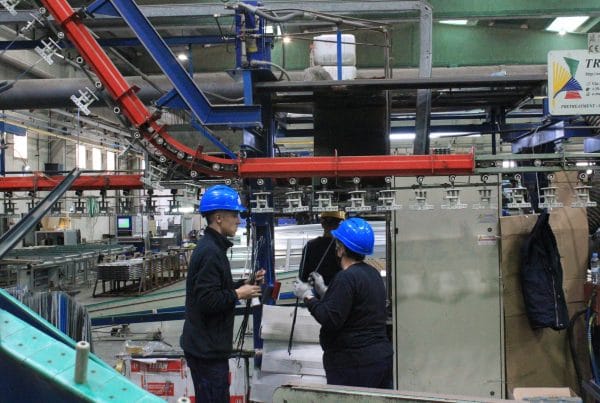- Developer debt exceeds 260 billion euros, 2% of China's GDP
- Its collapse is already affecting the price of metals and may affect banking, as happened in 2008 with the bankruptcy of Lehman Brothers.
The collapse of the Chinese real estate giant Evergrande on the Hong Kong stock exchange - where it has dropped almost 11% - threatens to cause a butterfly effect on world markets, which are experiencing a Monday of uncertainty and losses. The Ibex 35 has dropped 1.2% and has lost the 8,700-point mark.
Evergrande reaches its lowest trading point in eleven years, amid growing fears that the firm will go bankrupt as it is unable to meet its financial obligations.
The company's shares fell to HK$2.28 from the HK$2.54 at which it had closed last Friday. This is the worst figure recorded since May 2010. Since its all-time highs reached in October 2017, the company's stock market valuation has plummeted 92.77%. In the last 12 months alone, the plunge has been more than 88%.

At the moment, the brick giant's debt amounts to 1.97 trillion yuan (260,154 million euros), equivalent to approximately 2% of China's gross domestic product (GDP). Of this, 19 billion are bonds in the offshore market (foreign investors), including large Western funds.
At the close of trading on Monday, after continuous stock market plunges, its valuation is just 30.2 billion Hong Kong dollars (3.31 billion euros).
In its latest official statement on September 14, the firm alerted investors that it expects a "continued" and "significant" drop in sales in September. Evergrande said that the ninth month of the year is usually the best for China's real estate companies, but that recent press reports "have reduced the confidence of potential property buyers in the group."
According to data collected by Bloomberg, this Thursday the firm will have to make a coupon payment on a five-year bond of 83.5 million dollars (71.3 million euros). Until the end of the year, the firm has to face interest payments amounting to 669 million dollars (571.3 million euros).
Waterfall effect?
Although experts consider it premature to point to a contagion effect, they do not hesitate to point out that the collapse of a giant such as Evergrande will have an impact on banks due to their mortgage exposure, in a case reminiscent of Lehman Brothers in 2008.
Its effects on the metals sector may also be notable, as a raw material for construction. Thus, the price of steel, copper, aluminum and copper have already fallen.
Another contagion effect may be the loss of investor confidence in the entire real estate sector and in the Asian offshore market.
Via Niusdiario.es



